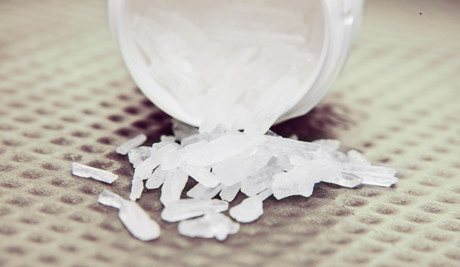New medication being trialled to treat ice addiction

In what is claimed to be a world first, Australian researchers are trialling a new medication to help people who are dependent on crystal methamphetamine, or ‘ice’.
The ‘N-ICE Trial’ will see researchers investigate whether N-acetyl cysteine (NAC) can reduce cravings for ice and help people stop using the substance. The National Drug Research Institute (NDRI) at Curtin University is leading the randomised controlled trial in collaboration with Deakin University, Monash University, the University of Wollongong, the University of Newcastle, La Trobe University and the Burnet Institute.
One of a new generation of medications being trialled for addiction, NAC targets glutamate changes in the brain that are thought to underpin drug craving and addiction. According to lead researcher and NDRI Associate Professor Rebecca McKetin, previous studies have shown that NAC can reduce cravings for methamphetamine use and other substances including cocaine, cannabis and tobacco.
“When someone first takes ice, they experience the desirable effects of intoxication,” Associate Professor McKetin said. “But if they continue to use, and become dependent, changes occur in the brain that cause cravings, making it hard to stop using ice.
“NAC helps to reduce cravings by restoring the balance of chemicals in the brain that are involved in craving and drug seeking, making it easier for people to manage their desire for the drug.”
Dr Olivia Dean from Deakin University’s IMPACT Strategic Research Centre added, “NAC is an amino acid derivative that has many actions that might be useful for people who are trying to stop taking ice.
“NAC can protect against the neurotoxic effects of ice and it is hoped that, in addition to helping people dependent on ice cut down or stop their use, NAC will reduce the mood changes that are often experienced as a result of ice addiction.”
There is currently no approved medication to treat addiction to ice, with the main forms of treatment including counselling interventions and residential rehabilitation. This is a significant barrier to users seeking help, with Dr Brendan Quinn from the Burnet Institute noting, “Many people who use ice do not access these traditional treatment options.
“Overstretched services with wait lists, the need for lengthy residential stays, stigma and fears about confidentiality are among the reasons people don’t get treatment,” he said.
NAC thus serves as a novel treatment approach that the researchers hope will help break the addition cycle. Dr Quinn said, “We are hoping this take-home medication can help people who aren’t accessing these conventional drug treatment options to reduce or stop their ice use.”
The N-ICE Trial is being funded by the National Health and Medical Research Council (NHMRC) and conducted at frontline clinical services in Wollongong, Geelong and Melbourne. Further information about the trial can be found at www.nicetrial.info.
Colon cancer DNA in blood can guide chemo decisions
A simple blood test could change how doctors decide which patients with colon cancer need...
Non-invasive blood test helps rule out oesophageal cancer
Designed and developed in Australia, the PromarkerEso test is designed to offer a quick,...
Taste-based flu test enables rapid diagnosis
The diagnostic tool consists of the sensor molecule thymol and a virus-specific sugar building...



